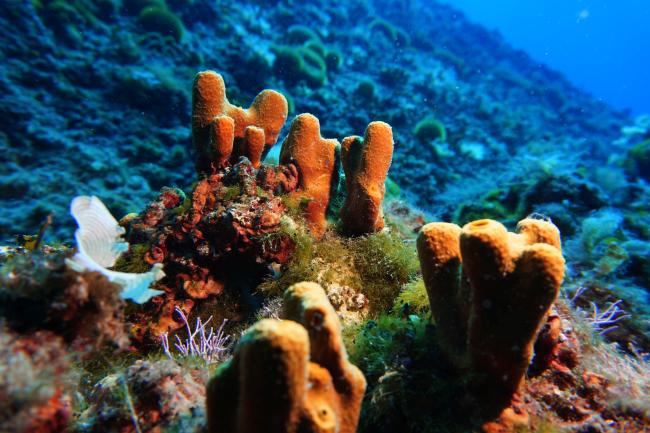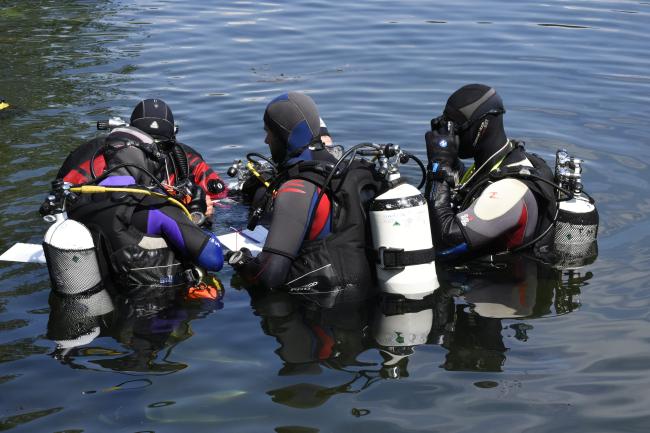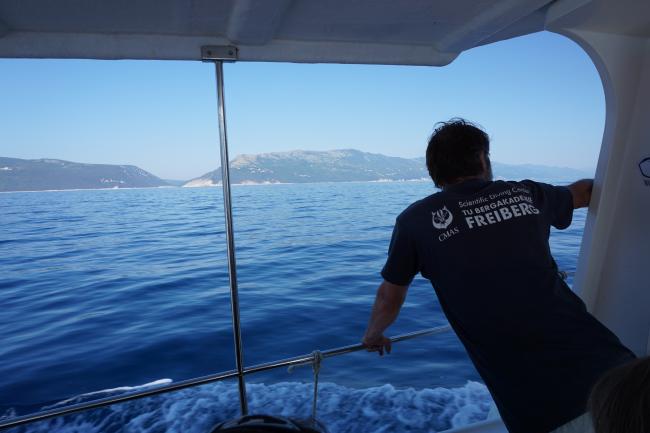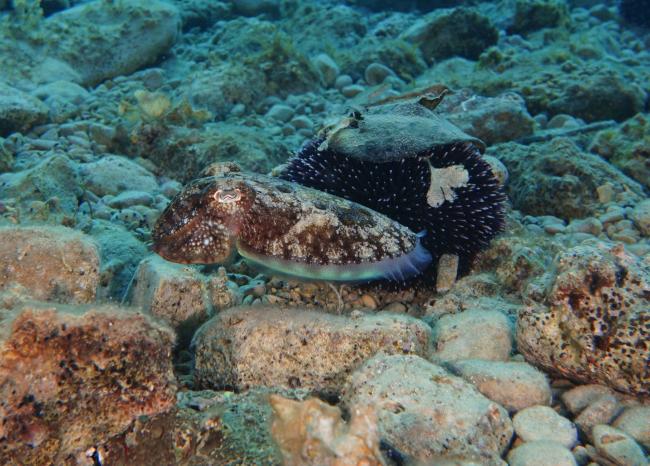Scientific Diving Centre TU Bergakademie Freiberg
The Scientific Diving Center (SDC) of the TU Bergakademie Freiberg emerged from the "Scientific Diving" course, which has existed since 1996, and was founded in 2001. Since then, it has established itself as one of the leading scientific diving facilities in Europe. It organizes and conducts research and university activities in the various fields of underwater research.
Now: ISO-certified training
- world's first
- internationally recognized
- for university members and external participants
- contents: Here
Scientific Diving
Scientific diving involves the application of scientific working methods at various levels and fields of application in physics, chemistry, biology, geosciences, fluid mechanics, thermodynamics and engineering. All these fields of research are part of the profile of the TU Bergakademie Freiberg and are actively supported by all faculties of the university.
In addition, the Scientific Diving Center is a training and research center for students, doctoral candidates and scientists from all over the world. In order to qualify scientific divers, it offers lectures, practical training and various excursions.
Participants can acquire globally recognized qualification levels for scientific diving at the SDC. Since 11 October 2024, the SDC has been the first organization in the world to be officially certified to offer “Scientific Diver” and “Advanced Scientific Diver” training in accordance with the ISO standard.
Our services include:
- Scientifically sound diving training for students of the TU Bergakademie Freiberg and external participants to become ISO-certified “Scientific Diver” and “Advanced Scientific Diver” More information about the education
- Development of underwater measuring devices, e.g. for temperature determination, water analysis, volume flow measurement, sampling and processing (of sediments, water, biota, etc.) as well as the integration of various sensor combinations and dynamic monitoring programs. More information about measuring devices
- Implementation, design and evaluation of monitoring of aquatic habitats with regard to both biotic and abiotic environmental factors (e.g. status analyses of marine reef systems, limnological observations, water chemistry and biological water conditions, etc.) More information about sampling
- Surveying and mapping of underwater sites using various technologies More information about surveying
- Provision of complete equipment for underwater research, e.g. for diving, carrying out measurements and for monitoring tasks
Selection of our activities and research projects
- Training of over 200 scientific divers to date
- Development of devices for underwater research, e.g. housings for sensors
- Measurements of heat flow and temperature gradients (in sediments on the seabed)
- Continuous measurement of gas flows on the seabed and CO2 and H2S levels in seawater
- Water and gas sampling
- Sampling methods for solid and unconsolidated rock
- Study of the impact of tourism on coastal regions, e.g. the Mediterranean coast of Croatia
- Investigation of the influence of submarine volcanic activity on the water structure (ocean acidification and its consequences for biodiversity, e.g. extreme microorganisms)
- Long-term monitoring of e.g. massive gas volume flows, temperature distributions and heat fluxes in sediments as well as the growth and distribution of indicator plants (e.g. seagrass, corals)
- Investigations into groundwater pollution caused by various aquifers in the Dead Sea under extreme diving conditions long-term monitoring of e.g. massive gas volume flows, temperature distributions and heat fluxes in sediments as well as the growth and distribution of indicator plants (e.g. seagrass, corals)
- Studies on groundwater pollution from various aquifers in the Dead Sea under extreme diving conditions
- Reef monitoring and diver training in the Red Sea
- Studies in lakes and artificial waters (e.g. open-cast mining lakes) in Germany
- Development and support of spin-offs, e.g. GeoWiD GmbH, Freiberg
- Establishment of a scientific diving unit at the Marine Science Center of the University of Basra, Iraq
- Discovery and investigation of a living coral reef off the Iraqi coast as well as investigations in a karst cave within an endorheic desert lake (Sawa Lake, Iraq)
- Planning and implementation of international conferences, e.g. the international workshop on "Research in shallow marine and freshwater systems" in 2009
Scientific Diving Center
Dr.-Ing. Thomas Grab, Gustav-Zeuner-Straße 7, Zimmer 303
Thomas.Grab [at] sdc.tu-freiberg.de
+49 3731 39-3004
News
News
Insights into diving training: New video online
TUBAF SDC
Pagination
Events
Upcoming Events
There are no events here yet. Check back later!





